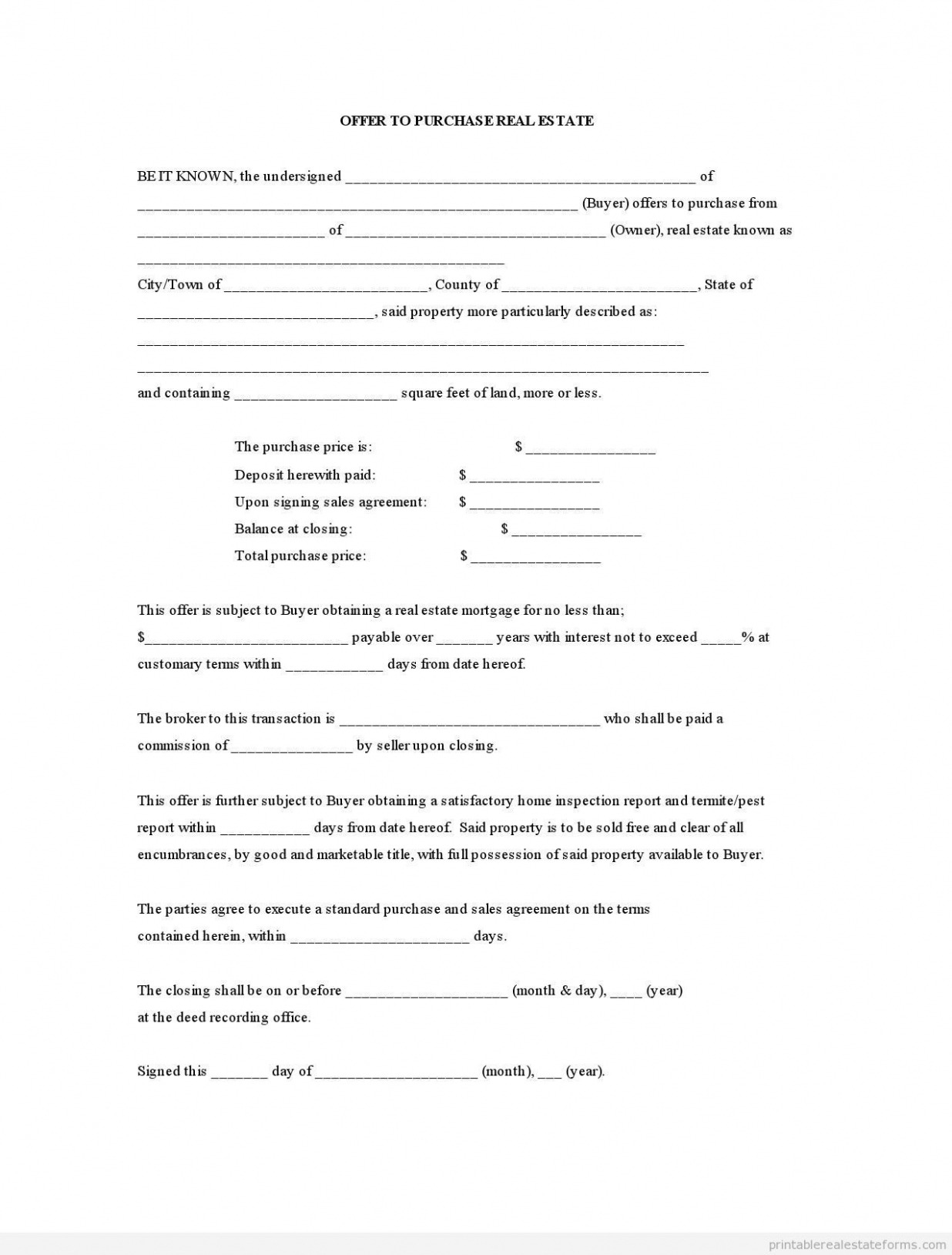Offer To Purchase Contract Template Taxpayers experiencing tax obligation financial debt problems seldom contrast the internal revenue service offer in compromise with the Chapter 13 insolvency. Regularly, the Chapter 13 will give a more specific solution for the taxpayer to deal with tax financial debt. This article takes a look at the loved one benefits of both the offer in compromise and also Phase 13.

An offer in concession might be one of the most promoted tax treatment. You can not listen to radio or see TV without being bombarded by advertisements to resolve your tax financial obligation. Usually the ads announce that the IRS has actually introduced that leniency in the collection of the tax obligation financial debt exists for a limited time. The unfortunate truth is that the compassion announcement by the internal revenue service was typically for various other issue location, such as tax sanctuaries. The IRS declines around 85 percent of all offers in compromise submitted because of question regarding collectibility. Deals in compromise are usually filed because the taxpayer believes the tax obligation debt can not be paid, Question as to Collectibility is one of the most usual sort of offer in compromise. Other sorts of offers in concession are outside the extent of this short article.
The benefit of the deal in compromise is that the tax obligation obligations, consisting of the associated penalties and passion, are decreased to the quantity the IRS as well as the taxpayer agree can be paid. Both parties must accept the regards to the deal in compromise. The offer in concession is a contract in between the internal revenue service and the taxpayer. The regards to the contract can be enforced versus the taxpayer in addition to the internal revenue service.

Acceptance of the deal in concession occurs when the internal revenue service thinks that the deal goes to the very least as high as could be accumulated by the internal revenue service over the one decade life of the statute of restrictions. The IRS will decline an offer that is for a lesser amount than it could otherwise accumulate.
The IRS makes use of a uniform set of economic standards that are not versatile in both the evaluation of the quantity paid monthly in an installment contract and also in an offer in concession. These standards restrict the expenses for living that the taxpayer can declare are necessary for living. The criteria consist of food, real estate and also energies, transport, as well as expense wellness cost. The criteria may create drastic problems for a taxpayer with a moderately greater standard of life. Business expenses are not impacted by the standards.
The analysis of the minimum offer in concession that will certainly make the offer processable is the equity in the taxpayer’s properties plus the amount that could be paid in an installment agreement over a given amount of time. The duration of the future month-to-month settlements taken into consideration by the IRS depends upon how the offer will be paid by the taxpayer. The internal revenue service desires 48 months of month-to-month payment if the taxpayer offers a lump sum. The IRS desires 60 months of regular monthly settlement if the deal is to be paid in a short term contract of two years or less. Nonetheless, the IRS will take into consideration valid problems such as retired life and health of the taxpayer in reducing the period of the multiplier.


